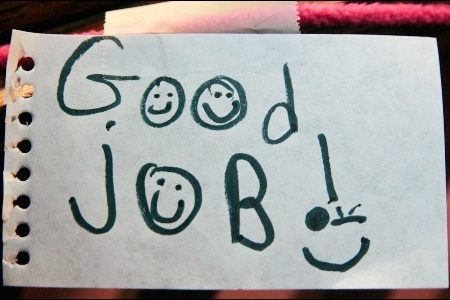Pay it forward!
Receiving help makes people feel dependent and inadequate. But recent research reveals a remedy: paying help forward. Read on to see how this works.
Imagine you have been in a car accident. Although you have survived, you are facing a long period of rehabilitation, during which you will be dependent on others for even the most basic actions. You cannot take a shower, get dressed, or even go to the toilet on your own. Can you feel the frustration? This is what many people experience on a daily basis. And I’m not just talking about people with physical impairments. Single parents, people living in poverty, or people who have lost their home due to natural disasters - these are all people who rely on help on a temporary or permanent basis. Just image how they must feel.
Relying on help
Why is relying on help so frustrating? Psychologists have been studying this question for years. Every helping relationship is characterised by some degree of inequality: the provider of help has resources, knowledge, or expertise that the recipient of help does not, but is in need of. As a recipient of help, you depend on the help-provider to meet your basic needs. You are reminded of this dependence every time you receive help, and this is frustrating.
Depression
So what if receiving help is a little frustrating - shouldn’t you just be happy that you are getting the help you need, and stop whining about your feelings? The problem with receiving help is that it gives rise to much more than frustration: receiving help thoroughly undermines basic human needs for positive self-esteem and control. People need to feel good about themselves, and they need to have a sense that they are in control of their lives. If they do not feel this, they can become severely depressed.
Catch 22?
Although receiving help could make us feel dependent and even depressed, refusing the help that we genuinely need is clearly not an option. So are we stuck in a ‘catch 22’ situation: damned if we do, and damned if we don’t? Recent research suggests a promising solution for this dilemma. This solution is based on the opposite side of the same coin: if receiving help makes people feel inadequate and dependent, then subsequently giving help to another person should make them feel strong and competent again.
Helping others
This idea of ‘helping forward’ was tested in an experiment. University students were asked to solve a set of complicated puzzles on the computer. Whenever they couldn’t solve a problem, they could seek help from another student. And because the puzzles were intentionally difficult, they sought help very often, which made them feel incompetent. But after completing all the puzzles, participants were asked to assume the role of helper, and help another student with the same puzzles in a new round. By helping others they were able to fully restore their bruised feelings of competence, making them feel good about themselves again.
Reality
Reality is of course more complex than a set of puzzles. If you need help after your car accident, you may not consider helping others in a similar manner in the future a viable option. But you don’t have to help others in exactly the same way. Why not show a friend how to build a website, if that is something you know how to do? People are far more capable of dealing with their shortcomings if they are aware of other compensating qualities, and helping others is a good way of reminding yourself of what you can do, rather than focusing on what you can’t.
Paying it forward
Although the underlying psychological mechanisms are rarely considered, the idea of ‘paying help forward’ is well known. For example, officials in New Jersey (USA) are considering offering ‘free’ college tuition if students agree to hand over a percentage of their later earnings, which can then be used to give new students a ‘free’ education. And many of us have heard of the Starbucks customer who decided to pay for the next customer, who then paid for the next, and so on. Although this is not a means of helping the financially needy, it is an act of kindness that puts a smile on people’s faces. And if nothing else, isn’t this reason enough to want to help another person?





